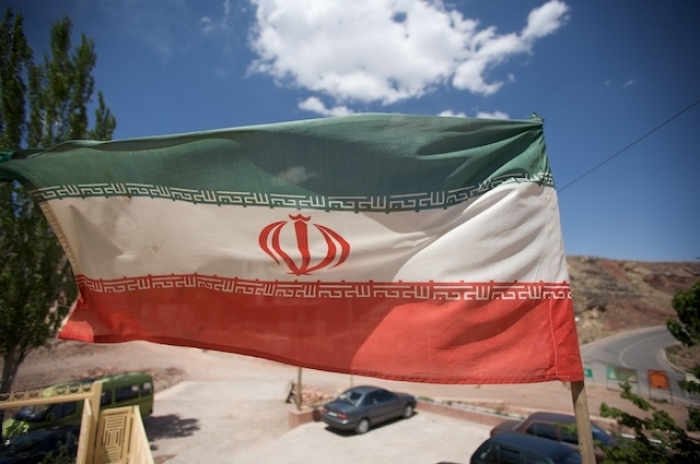5 ways Iran violates Christians’ right to religious freedom

Five Christian groups have submitted a collaborative report to the United Nations Human Rights Committee, listing five ways in which Iranian Christians face violations to their right to freedom of religion or belief that go against the Islamic country’s international commitments.
The nonprofit watchdog group Article 18, which promotes religious freedom and tolerance for Christians in Iran, has released the report in collaboration with its partner organizations Open Doors, Christian Solidarity Worldwide, Middle East Concern and The World Evangelical Alliance.
Here are the five ways Iran persecutes Christians, according to the report:
1. Iran prohibits Persian-language church services and religious materials, and forces closure of those that fail to comply, the report points out.
Last May, an Assyrian church in northwestern Iran was closed down and the cross was removed from its tower because it reportedly attracted Muslim-born Iranians as its services were held in the Persian language, according to World Watch Monitor.
Church members who were found to have evangelized to Muslims, such as the Assyrian pastor Victor Bet-Tamraz, had been charged with “actions against national security” and handed long prison sentences.
2. The Iranian government uses Articles 489, 499 and 500 of the country’s Penal Code to prosecute Christians for their peaceful religious activities.
Last month, four Iranian Christian converts — Hossein Kadivar, Khalil Dehghanpour, Kamal Naamanian and Mohammed Vafadar — were summoned to begin their five-year jail sentences for leading house churches in the northern city of Rasht, for which they were convicted of “acting against national security.”
3. Iranian authorities prosecute — and in one case executed — Iranians who leave Islam on charges of “apostasy,” and justifies it through the use of Article 220 of the Iranian Penal Code and Article 167 of the Constitution, which allows judges to rely on non-codified Islamic law.
Iranian Christian prisoner Yousef Nadarkhani was first arrested on charges of apostasy and was given a death sentence in 2010. That conviction was quashed in 2012, following international outcry. He is, however, still serving a 10-year sentence for his Christian activities.
4. Iran confiscates or forces closure of church properties, just as it did with the Assyrian Presbyterian Church in Tabriz last May.
“Intelligence agents stormed the 100-year-old church, officially recognized as a national heritage site in Iran, on Thursday, May 9, changed all the locks, tore down the cross from the church tower, and ordered the churchwarden to leave,” Article 18 reported at the time.
5. Iran discriminates against non-Muslims in marriage and inheritance laws, and in giving access to employment and education.
According to the country’s Civil Code, a Muslim woman is not allowed to marry a non-Muslim man, as per Article 1059, and a non-Muslim cannot inherit from a Muslim, according to Article 881, the report points out.
Access to higher education and employment is also restricted for minority faith adherents, especially concerning jobs in the public sector. In May 2019, for example, the State Welfare Organization issued a directive prohibiting minority faith adherents from working in nursery schools.
The Christian groups have also urged the UNHRC to ask some specific questions to the Iranian government, including how Article 13 of the Iranian Constitution, which recognizes only Zoroastrians, Jews and Christians as religious minorities, is in line with the provisions of the covenant, and whether Iran plans to amend its Civil Code to allow non-Muslims to inherit from Muslims or Muslim women to marry non-Muslims.”
Iran should also be asked for information on minority faith adherents who wish to practice their faith in the Persian language, and respond to reports that minority faith adherents are being tried on national security charges for the legitimate practice of their faith, the report says.
The country should be asked to clarify how apostasy charges are in line with Article 18 of the ICCPR, which provides for freedom to choose and change one’s religion, and also to send reports on how many Christian converts are currently detained on charges relating to national security or apostasy.
Iran ranks as the ninth worst country in the world when it comes to Christian persecution on Open Doors USA’s 2020 World Watch List. At least 169 Christians were arrested in Iran during the organization’s 2019 reporting period — Nov. 1, 2018 to Oct. 31, 2019.




























